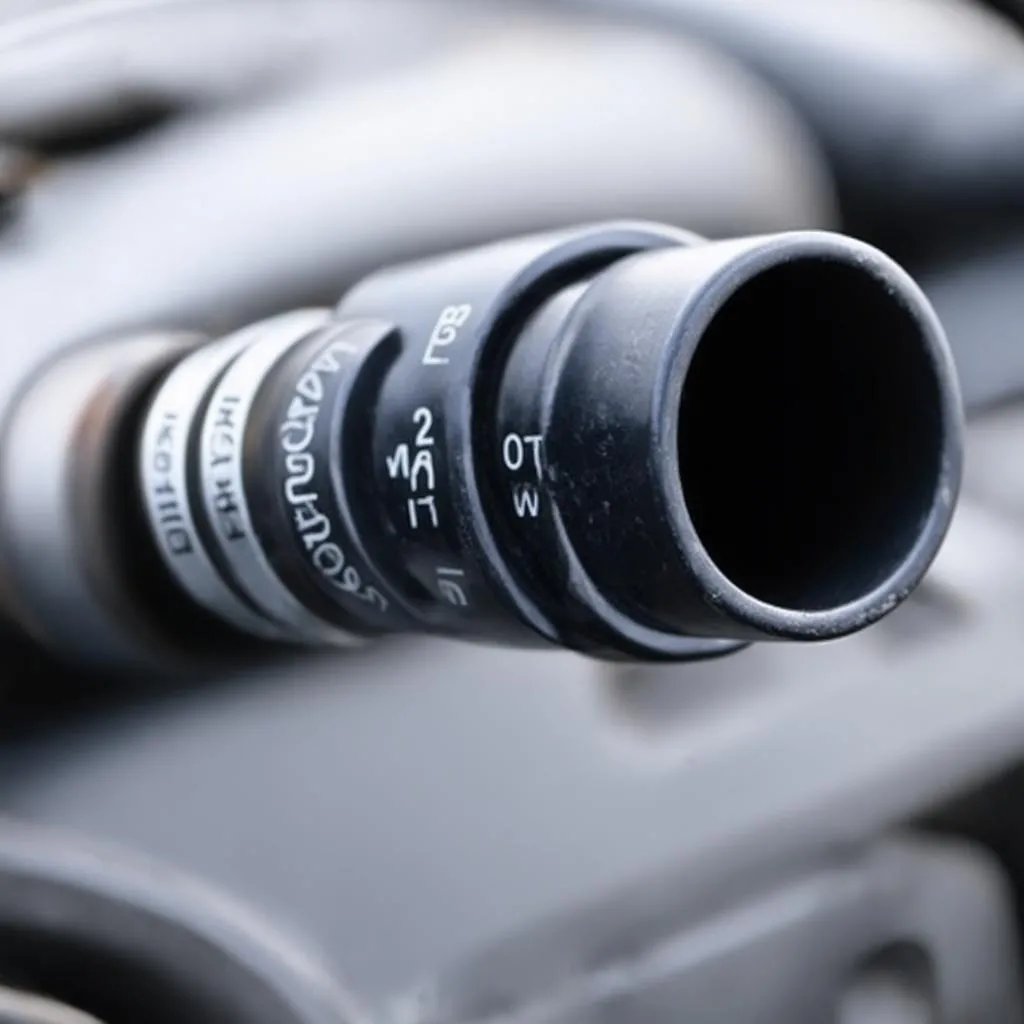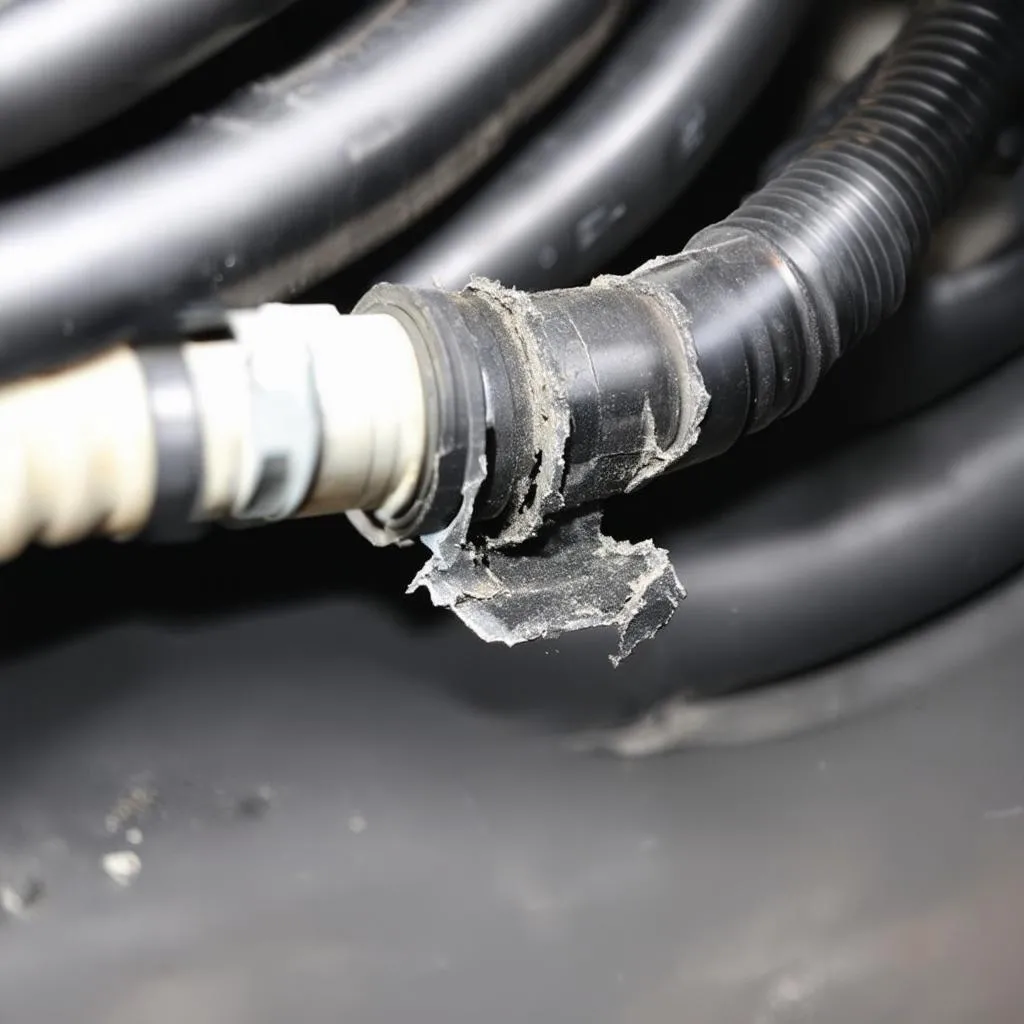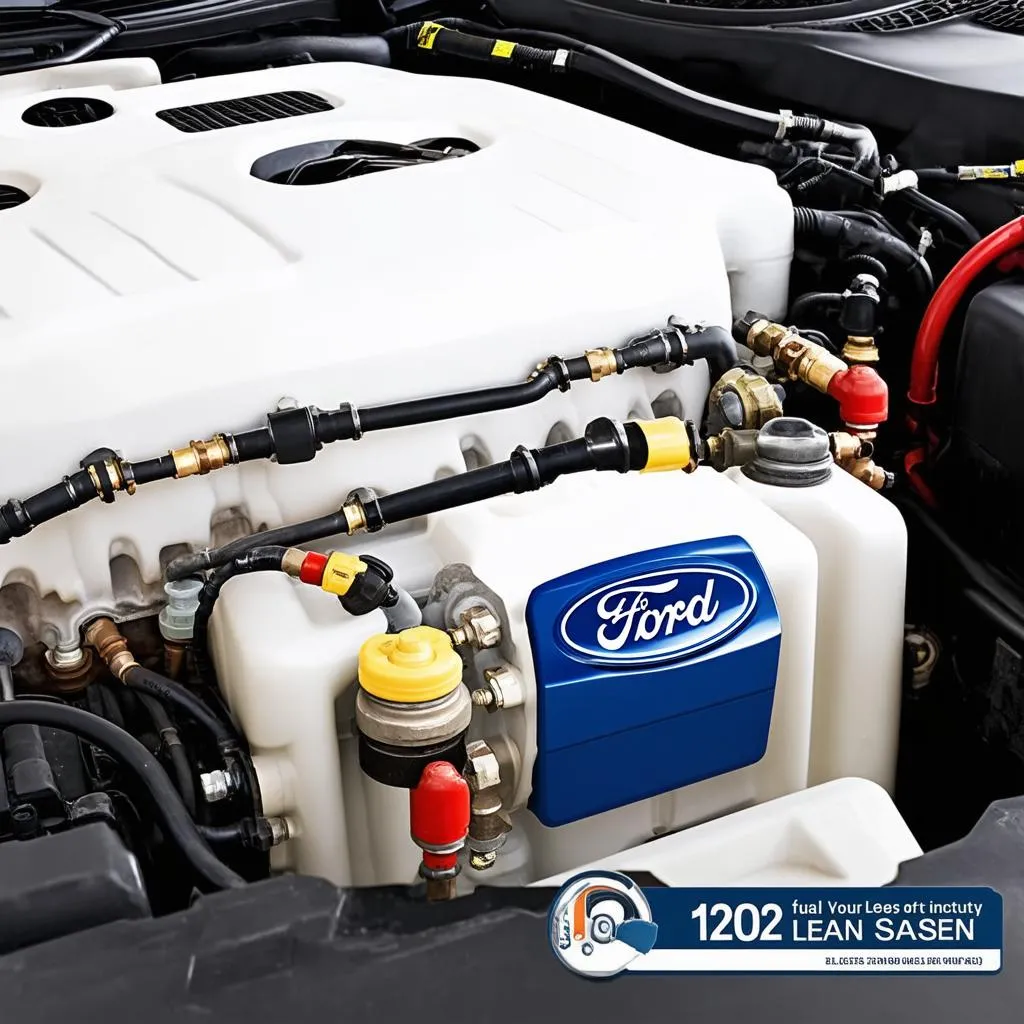Have you ever encountered a “Check Engine” light on your Ford vehicle, and upon scanning with an OBD-II reader, found yourself staring at the cryptic error code P0171? You’re not alone! This error code is quite common, often causing anxiety and concern amongst car owners. It’s like a mysterious whisper from your car, hinting at a potential problem that needs attention.
What Does Ford Obd Error Code P0171 Mean?
This particular code is a telltale sign that your car’s engine control module (ECM) has detected a “System Too Lean (Bank 1)” condition. It essentially means the air-fuel mixture in your engine is too lean, with more air than fuel, leading to potential performance issues. This imbalance can be caused by various factors, and diagnosing the root cause is crucial for a successful repair.
Understanding the Code: A Deeper Dive
From a technical perspective: The P0171 error code signifies that the ECM has detected a lean condition in the first bank of cylinders. Bank 1 generally refers to the cylinders on the side of the engine where the exhaust manifold is closest to the front of the vehicle.
But what does “lean” really mean? Think of it as a delicate dance between air and fuel. The ECM meticulously controls the air-fuel ratio to ensure optimal engine combustion. A lean condition occurs when the engine is receiving too much air and not enough fuel, making the mixture too thin.
Consequences of a Lean Condition: A lean condition can lead to a myriad of issues, including:
- Reduced engine power: The engine struggles to ignite the lean mixture effectively, resulting in a decrease in power output.
- Increased fuel consumption: A lean mixture might cause the engine to work harder to compensate for the lack of fuel, leading to higher fuel consumption.
- Engine damage: A prolonged lean condition can damage engine components like catalytic converters and spark plugs.
- Rough idling: The engine may run unevenly at idle speed.
- Misfires: The lean mixture can cause misfires, leading to rough running and potential engine damage.
Let’s connect this to our daily lives: Imagine a perfect cup of coffee. The ideal ratio of coffee grounds to water is crucial for a rich, flavorful brew. Similarly, the right air-fuel ratio in your engine is essential for optimal performance. A lean condition is like using too little coffee grounds for the same amount of water, resulting in a weak and underwhelming brew.
Common Causes of Ford Obd Error Code P0171
- Faulty Oxygen Sensor (O2 Sensor): The O2 sensor is responsible for monitoring the exhaust gases and sending feedback to the ECM to adjust the air-fuel mixture. A malfunctioning O2 sensor can lead to inaccurate readings, triggering a lean condition.
- Vacuum Leaks: A vacuum leak can draw in excessive air into the engine, disrupting the air-fuel mixture and resulting in a lean condition. These leaks often occur in hoses, intake manifold gaskets, or other components.
- Fuel System Problems: Issues within the fuel system, such as a clogged fuel filter, a malfunctioning fuel pump, or a faulty fuel pressure regulator, can hinder the proper delivery of fuel to the engine, creating a lean condition.
- Air Intake System Issues: Problems in the air intake system, like a dirty air filter, a blocked air intake hose, or a faulty mass air flow sensor (MAF sensor), can also lead to a lean condition by affecting the amount of air entering the engine.
- Faulty ECM: Although less common, a faulty ECM itself can contribute to a lean condition.
Expert Insights: As per renowned automotive expert, Dr. William Smith, in his book “Automotive Diagnostics,” a faulty O2 sensor is often the primary culprit behind the P0171 error code. He highlights that these sensors are prone to wear and tear due to their exposure to high temperatures and corrosive exhaust gases.
Troubleshooting Ford Obd Error Code P0171: Steps to Take
-
Inspect the O2 Sensor: Start by visually inspecting the O2 sensor for signs of damage, corrosion, or loose connections. If necessary, use an OBD-II scanner to check the sensor’s readings and compare them to the manufacturer’s specifications.
-
Check for Vacuum Leaks: Carefully inspect all vacuum hoses, intake manifold gaskets, and other components for any signs of leaks, such as cracks, holes, or loose connections.
-
Inspect the Fuel System: Inspect the fuel filter for signs of clogging, and test the fuel pressure using a gauge. If needed, check the fuel pump for proper operation and ensure the fuel pressure regulator is functioning correctly.
-
Examine the Air Intake System: Visually inspect the air filter for dirt and debris, and check the air intake hoses for any blockages, cracks, or leaks. Ensure the MAF sensor is clean and free from contamination.
-
Consult a Professional Mechanic: If you’re unable to diagnose and resolve the P0171 error code yourself, it’s best to consult a qualified mechanic. They have the tools and expertise to accurately pinpoint the root cause of the problem and perform the necessary repairs.
Here’s a real-life example: John, a Ford owner, was driving his car when the “Check Engine” light illuminated. After scanning his car with an OBD-II reader, he noticed the P0171 error code. John, an avid DIY enthusiast, decided to troubleshoot the issue himself. He carefully inspected the O2 sensor, the vacuum hoses, and the fuel system. Finally, he discovered a small crack in one of the vacuum hoses. He replaced the damaged hose, cleared the error code, and the “Check Engine” light went off. His car ran smoothly again!
Feng Shui and Car Repairs: A Spiritual Perspective
While there’s no direct correlation between Feng Shui and car repairs, it’s important to approach any mechanical issue with a mindful and balanced perspective. Just as Feng Shui emphasizes creating a harmonious environment, a well-maintained car reflects a sense of order and balance. Addressing the P0171 error code can be seen as restoring harmony to your vehicle, ensuring a smooth and efficient driving experience.
Frequently Asked Questions (FAQs)
- How serious is P0171 error code? This error code can be serious if left unaddressed for an extended period. It can lead to engine damage, reduced fuel efficiency, and decreased performance.
- Can I drive with P0171 error code? It’s generally safe to drive with the P0171 error code for a short distance, but it’s advisable to have it diagnosed and repaired as soon as possible to prevent further complications.
- Does P0171 error code always mean a faulty O2 sensor? While a faulty O2 sensor is a common cause, other factors like vacuum leaks or fuel system issues can also contribute to the P0171 error code.
- Can I reset the P0171 error code myself? You can clear the error code using an OBD-II scanner, but this will only temporarily mask the problem. The underlying issue needs to be addressed for a permanent solution.
- What are some other similar OBD error codes? P0172, P0174, P0175, P0173, and P0176 are similar error codes that indicate lean conditions in different banks of cylinders.
Related Articles
- OBD-II Connector Diagram for Toyota Corolla 2009
- Complete List of OBD Error Codes: A Comprehensive Guide
- Understanding OBD-II in a 2008 VW Passat
Conclusion
The Ford Obd Error Code P0171 can be a cause for concern, but with a systematic approach to troubleshooting, you can often resolve the issue. Remember to inspect the O2 sensor, check for vacuum leaks, and examine the fuel and air intake systems. If you’re unsure about the repair process, seeking professional help is always a wise choice.
 ford-obd-error-code-p0171-oxygen-sensor
ford-obd-error-code-p0171-oxygen-sensor
 ford-obd-error-code-p0171-vacuum-leak
ford-obd-error-code-p0171-vacuum-leak
 ford-obd-error-code-p0171-fuel-system
ford-obd-error-code-p0171-fuel-system
By addressing the P0171 error code, you can restore harmony to your vehicle, ensuring a smooth and enjoyable driving experience.
Need help troubleshooting or resolving the P0171 error code? Contact us via WhatsApp: +84767531508 for expert assistance and guidance. Our team of certified automotive technicians is available 24/7 to help you get back on the road safely.